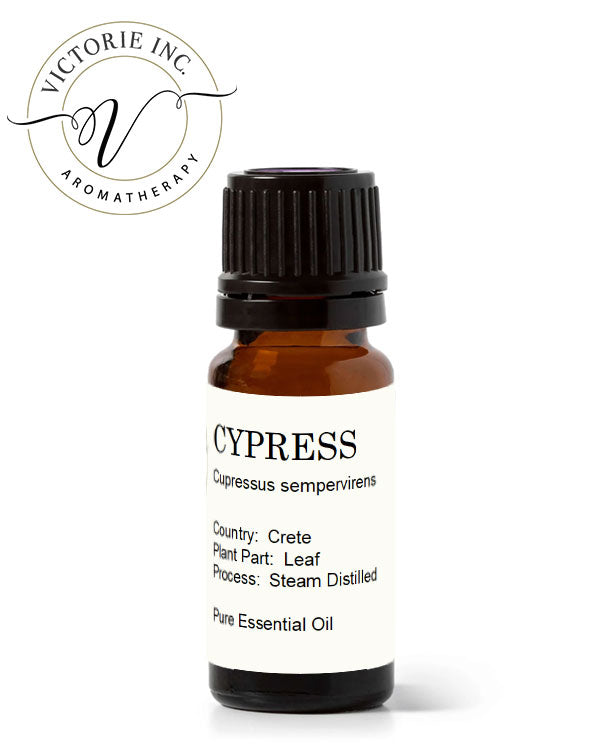
Cypress Essential Oil
Cypress Leaf Essential Oil
Scientific Name: Cupressus sempervirens
Country of Origin: Crete
Distillation Method: Steam Distilled
Plant Part: Leaves
Perfume Note: Top - Middle
Cypress is an evergreen tree growing to 160 feet high with slender branches and a conical shape bearing small flowers producing round brownish-gray cones or nuts. Some cypress tress are reported to be over 3,000 years old.
Our cypress essential oil has a clean, refreshing, lively scent.
Blending Suggestions: Cypress Blends Well With Citrus Oils, Bergamot, Cedarwood, Clary Sage, Frankincense, Juniper, Lavender, Marjoram, Pine and Rosemary, Sandalwood, and Tea Tree.
Suggested Oil Uses & Properties for External Applications:
Anointing Oil, Meditation, Perfume, Room Fragrance, Diffuser, Balms, Soap
Balancing, Calming, Protective, Supports Confidence
Anti-inflammatory, Antimicrobial, Antirheumatic, Analgesic, Antispasmodic, Diuretic, Decongestant, Astringent
Safety:
Hazards: Skin sensitization if oxidized.
Cautions: Old or oxidized oils should be avoided.
Tisserand, Robert; Young, Rodney. Essential Oil Safety: A Guide for Health Care Professionals (p. 1127). Elsevier Health Sciences. Kindle Edition.
Storage: Store in a dark colored bottle out of direct sunlight.
Easton's Bible Dictionary
Cypress
(Heb. tirzah, "hardness"), mentioned only in Isaiah 44:14 (RSV, "holm tree"). The oldest Latin version translates this word by ilex, i.e., the evergreen oak, which may possibly have been the tree intended; but there is great probability that our Authorized Version is correct in rendering it "cypress." This tree grows abundantly on the mountains of Hermon. Its wood is hard and fragrant, and very durable. Its foliage is dark and gloomy. It is an evergreen (Cupressus sempervirens). "Throughout the East it is used as a funereal tree; and its dark, tall, waving plumes render it peculiarly appropriate among the tombs."
These dictionary topics are from M.G. Easton M.A., D.D., Illustrated Bible Dictionary, Third Edition, published by Thomas Nelson, 1897. Public Domain, copy freely.
This information has not been evaluated by the Food and Drug Administration. This product is not intended to diagnose, treat, cure, or prevent any disease. For educational purposes only.


